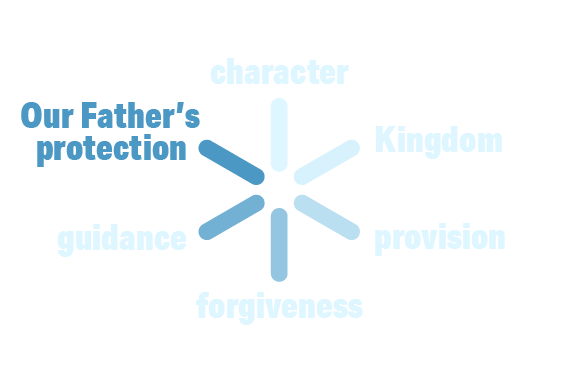Mal Calladine writes:
Over these final days of lent, my plan each day is to bring one attention-getter for me from doing these daily Lent reflections, to tell the story of who and what got me thinking, and suggest how it could apply for each of us on in these final days of remembering ourselves into the Easter story.
What are you going to do today to position yourself to engage with what this day means?
For us, we’ll have hot cross buns for brunch and use maybe more than one of the reflective resources on our website, available here.
As a household, we’ve compiled a playlist of the songs that most represent what today means to us (my current favourites are by Adele, Prince & Superchick!)
And we have a fire pit planned for later to do the Guided Reflection (from the website) about Peter experiencing the key moments of this day unfold as he stood by the fire.
But how do we pray the Lord’s Prayer today? Reflecting on the depth of what today means, I was most reminded of Andrew Kerr’s reflections back in week 2 when he wrote about his ‘Spidey Sense’:
"Have you ever been somewhere and it just didn't feel right? Not that it smelt funny or you didn't like the curtains but that deep down your 'Spidey sense' (perhaps better called your spiritual discernment) was tingling and you just had to leave? I've had that feeling couple of times before, and it's on those occasions that I have been most aware of the spiritual battle that rages.”
Today is a day to acknowledge that there really is a spiritual battle - and today we mark THE crucial engagement in all of history. The day that death was defeated - by taking it on. That a suitable sacrifice was found. That many look to other possible answers to defeat death, but only one really does “deliver us” from all that sets itself up in opposition to God.
As the prophet Isaiah proclaimed about the ‘rescuer’ Messiah, that they were expecting…
The Lord will march out like a champion, like a warrior he will stir up his zeal; with a shout he will raise the battle cry and will triumph over his enemies. (Isaiah 42:13)
They thought a triumphal superhero was coming, not in the guise of a suffering servant. Yet they also knew He was the one who would fulfil another proclamation by Isaiah about this ‘rescuer’ …
But he was pierced for our transgressions, he was crushed for our iniquities; the punishment that brought us peace was on him, and by his wounds we are healed. (Isaiah 53:5)
It IS winning the battle - but not in the way everyone expects a fight to look like.
So what do I want to embrace about this battle today that helps me live into the Lord's Prayer? As a communicator, I remember being impacted by John Stott’s phrase “in the shadow of the cross” - his challenge being that every talk by a speaker in church should be clearly seen to be speaking from there. So I want to pray the Lord’s Prayer today "in the shadow of the cross."
Because you ARE my Father and are only good to me, in your perfect holiness
Because your Kingdom rule is coming
Today I remember that you provided the breakthrough of how I can be truly forgiven and release the power to allow me to truly forgive
Because you provide for me in all the ways I need
Because you guide me and lead me
Today I remember that you delivered me from all the evil that this world holds
Thank you for what you did for me on the cross. I acknowledge that today I mark how my world and the whole of history changed, that you opened up a new and living way to the Father, that to all who receive what you did this day - and believe it - you gave the right to become Children of God.
And one final thought. Whilst reflecting on this I was reminded of David Bowie! In 1992 he played at Wembley in a huge tribute concert for Freddie Mercury. At the end of his set, he played ‘Heroes’ with the rest of Queen and then spoke to the crowd, acknowledging Freddie’s death, alongside those at that time affected by that other recent global pandemic - AIDS. How do you respond to the cry of the crowds, with the uncomfortable, yet authentic, focus on pain, loss and death? How could he inhabit that moment? Unrehearsed and impromptu, he got down on his knees & prayed…













